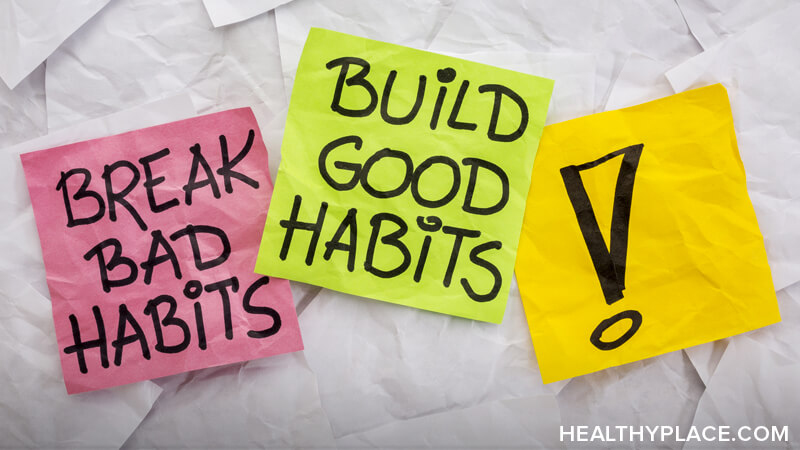Disordered Eating and Body Image in the Fitness Industry

As a personal trainer and fitness coach, I fancy myself a peddler of good health -- but many who are in the industry or immersed in the fitness world are plagued by disordered eating habits and poor body image. In truth, the fitness industry is fraught with side effects and unintended consequences. Many of us use social media as a way to advertise our services. But as we label the photos we post of our abs as "fitness inspiration," many of us are willfully ignoring the fact that photos like these often make women feel worse, not better, and are perhaps contributing to body dissatisfaction and diminished self-esteem. Furthermore, in our efforts to help clients reach their fitness goals, we often find ourselves giving nutrition advice, which is outside of our scope of practice. It's important for us to keep in mind the complicated dynamics that go along with food -- and it's imperative that we don't instill our clients and followers with patterns of disordered eating and body image.
Social Media and Body Image
Until recently, I didn't have social media accounts dedicated to my business. Social media is home to fitness-related content of varying quality; I was wary of fitness influencers who posted revealing pictures of themselves without much quality information. This type of content didn't bother me because of the partial nudity -- I myself spend most days at the gym in nothing but a sports bra and booty shorts. It bothered me because I was concerned that women scroll past these images, see hyper-lean men and women, and begin to believe that these body types are representative of health and happiness. The fitness domain of social media is oversaturated with very lean men and women, and I didn't want to be part of it. But I have a chronic illness called Behcet's Disease, which was threatening my livelihood; it became clear that I needed to find a way to grow my online coaching business and make money from home. And whether I like it or not, a lean physique attracts clients. But now I have to wonder -- am I helping people to lead healthier lifestyles? Or am I contributing to the rise of disordered eating and body image?
Healthy Diet or Disordered Eating
So I post these pictures of me in my sports bras. I try to provide useful content in the captions. I'm a graduate student of physiology, so I review relevant literature and discuss my health struggles. But still, most of my clients come to me with the same goals: they want to lose weight and they want to get lean. I'm happy to help. The relationships that I form with clients are bonds that I'm proud and grateful to have in my life. I have had several clients who have had long struggles with weight loss; I'm happy to help them find sustainable solutions. The problem is that nutrition is a bigger piece of this solution than many of us would like to believe. So I refer them to registered dietitians. But many coaches don't refer, they advise. And establishing healthy eating habits is a balancing act -- the hope is to instill moderation without instilling disordered eating or poor body image. And things can teeter into the latter territory more easily than we would like. I know I'm the last person who should offer nutrition advice -- my Behcet's Disease means that I cannot eat without pain, and a meal can sometimes even induce stomach ulceration and bleeding. Because of this, I have my own disordered eating habits. Food is an adversary that I often avoid to my detriment.
Instilling Healthy Habits Instead of Disorder
I knew I was walking a dangerous line when a client said to me, "at least you don't overeat, you always have abs." She was referring to my GI symptoms. She showed me that some women thought, at least in some ways, that it would be better to be chronically ill and lean than struggle with diet and unrealistic body standards the way so many women do. I believe it's my responsibility to continue nourishing my relationships with my clients while instilling habits that will make them healthier both physically and mentally. To forget the latter would be to the detriment of my clients, our relationships, and to the fitness community.
APA Reference
Card, M.
(2019, December 31). Disordered Eating and Body Image in the Fitness Industry, HealthyPlace. Retrieved
on 2025, November 29 from https://www.healthyplace.com/blogs/relationshipsandmentalillness/2019/12/disordered-eating-and-body-image-in-the-fitness-industry
Author: Miranda Card
Thank you for sharing this wonderfully honest and important account! Social media is something that many of us are involved in one way or another, some more than others. Body image and appearance are probably two of the most notable things that come up on social media, with the fitness segment being one of the largest. I think it's so important that you discuss the importance of nutrition but recognize that this is an area to refer others for. The point about being ill and lean versus being healthy is such an important one for us to take note of. Healthy and happy, or sick and appearing "healthy".
Lizanne,
Thank you for reading! I'm glad that others are able to relate to this concern. I was nervous to post this experience because I know that many of my peers see it differently but I feel like it's an important topic that could use more discussion!